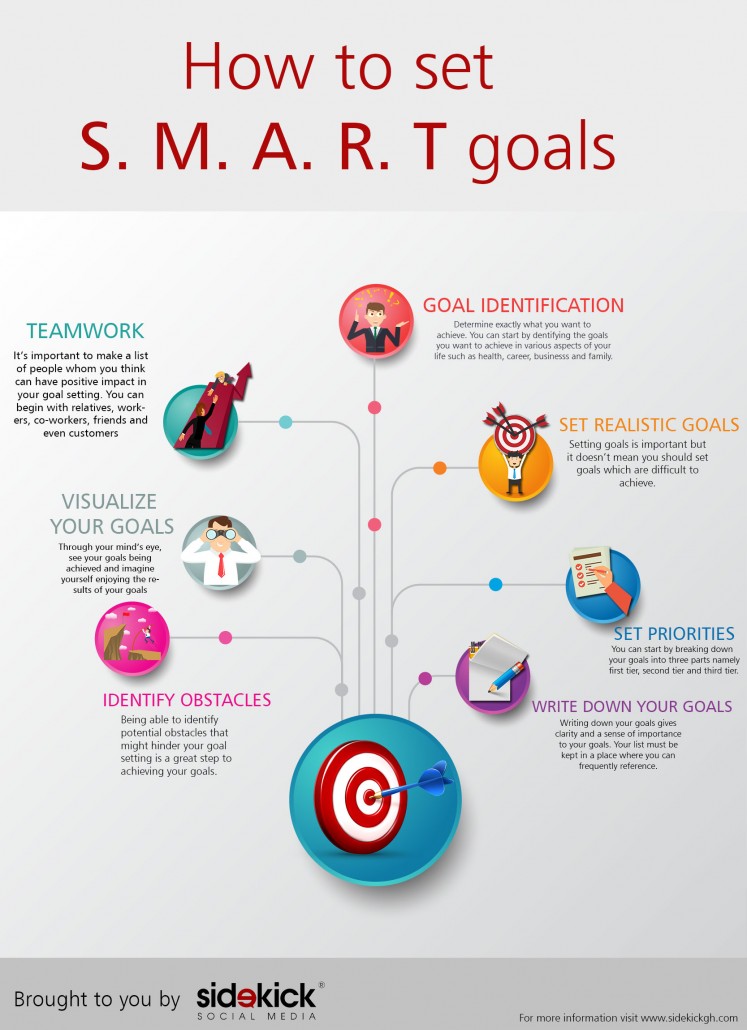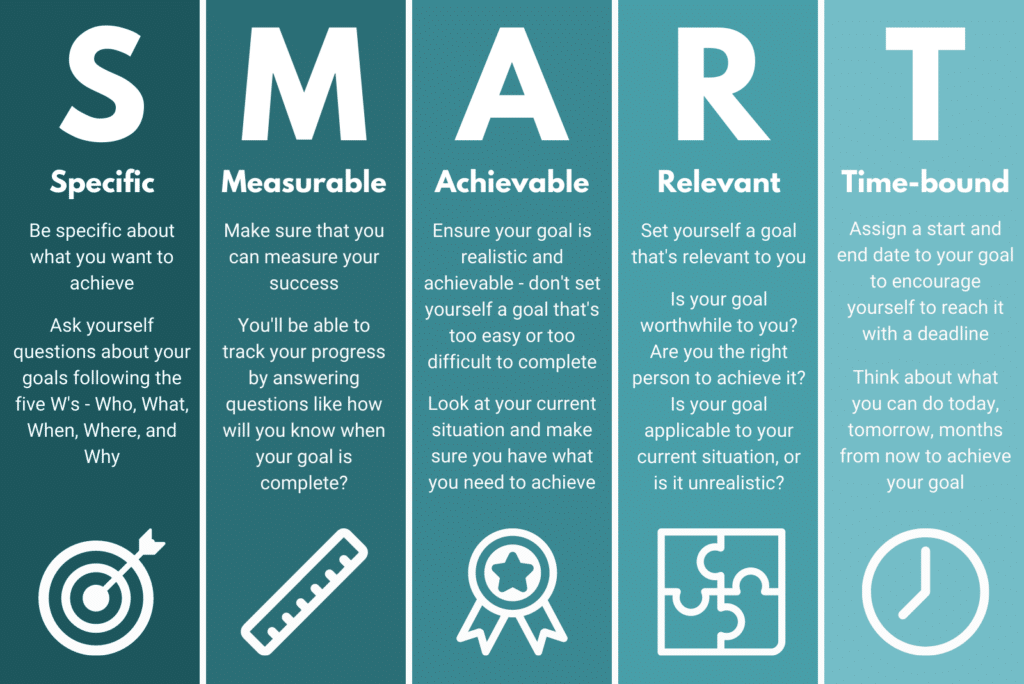
Reach Success with Smart Goal Setting
April 29, 2024Unlock the secrets to reaching success with strategic goal setting – learn how to achieve your dreams one milestone at a time.

Image courtesy of Valentin Antonucci via Pexels
Table of Contents
Introduction to Goal Setting
In life, we all have dreams and things we want to accomplish. These things we want to achieve are called goals. Goals are like road maps that help us reach where we want to go. By setting goals, we can work towards success and personal achievement.
What are Goals?
Goals are the things you want to do, have, or be in the future. They give you something to aim for and help you stay focused. Imagine if you want to be a great soccer player. Your goal would be to practice every day, improve your skills, and maybe one day play for your favorite team. This is your goal that you’re working towards.
Why Set Goals?
Setting goals is important because it gives you a sense of direction. It helps you know what steps you need to take to achieve what you want. When you have clear goals, you can make a plan to reach them. This way, you can measure your progress and stay motivated to keep going even when things get tough.
Types of Goals
When it comes to setting goals, there are different types that you can aim for. Let’s take a look at the various kinds of goals and understand how they can help you achieve success.
Short-term vs Long-term Goals
Short-term goals are things you want to accomplish in the near future, like finishing a book by the end of the week. Long-term goals, on the other hand, are bigger goals that may take more time to achieve, such as learning a new language over the course of a year.
For example, if you love playing soccer, a short-term goal could be to improve your dribbling skills by the end of the month. A long-term goal might be to make it onto your school’s soccer team by the end of the year.
Easy vs Challenging Goals
It’s essential to have a mix of easy and challenging goals. Easy goals are those that you can accomplish relatively quickly and effortlessly, boosting your confidence. Challenging goals, on the other hand, push you out of your comfort zone and help you grow.
For instance, an easy goal could be to read a book in a week, while a challenging goal might be to write and illustrate your own storybook by the end of the month. Both types of goals are important for your growth and development.
The SMART Goal Framework
Setting goals is a crucial step towards achieving success and personal achievement. But how do you ensure that your goals are effective and attainable? This is where the SMART goal framework comes in.

Image courtesy of www.sidekickgh.com via Google Images
What Does SMART Stand For?
The SMART framework breaks down into five key elements that make your goals clear and achievable:
S – Specific: Your goal should be clear and specific, leaving no room for ambiguity. For example, instead of saying “I want to get better at math,” a specific goal would be “I will improve my math grades by studying for at least 30 minutes every day.”
M – Measurable: Your goal should have a way to track your progress and measure your success. This could be through numbers, percentages, or other measurable indicators. For instance, you can measure your math improvement by tracking your test scores.
A – Achievable: Make sure your goal is something that is within your reach and realistic. Setting impossible goals can lead to frustration and disappointment. Start with smaller steps that build up to your ultimate goal.
R – Relevant: Your goal should be meaningful to you and align with your long-term objectives. It should be something that motivates you and moves you closer to your dreams and aspirations.
T – Time-bound: Set a deadline for your goal to create a sense of urgency and focus. This will help you stay on track and prioritize your efforts. For example, you can set a deadline of one month to improve your math grades.
Creating Your SMART Goals
Now that you know what SMART stands for, it’s time to create your own SMART goals. Follow these steps:
1. Identify your goal: What do you want to achieve? Make sure it is specific and measurable.
2. Break it down: Divide your goal into smaller, achievable steps that lead towards your ultimate objective.
3. Make a plan: Determine the actions you need to take to reach your goal and set a timeline for each step.
4. Monitor your progress: Keep track of how you are doing and adjust your plan if necessary.
5. Celebrate your success: When you reach your goal, take the time to acknowledge your accomplishment and set new goals to continue your journey towards success.
The Role of Ambition and Perseverance
Ambition is like having big dreams and setting your sights on achieving something great. It’s about knowing what you want and being determined to go after it. When you set ambitious goals for yourself, you are giving yourself something exciting to work towards. Whether it’s becoming a famous astronaut or a talented artist, having ambition pushes you to keep moving forward.
The Power of Perseverance
Perseverance means never giving up, even when things get tough. Imagine you’re trying to learn how to ride a bike, and you keep falling off. Instead of giving up and deciding it’s too hard, perseverance is getting back on the bike each time you fall until you finally succeed. It’s about believing in yourself and your abilities, even when faced with challenges.
Getting Help from Others
In your journey towards achieving your goals, it’s essential to remember that you don’t have to go it alone. Seeking help from others can make a big difference in how successful you are in reaching your ambitions. Let’s explore how coaching and guidance from others can support you on your path to success.

Image courtesy of www.thinkteaching.co.uk via Google Images
What is Coaching?
Coaching is like having a personal cheerleader and mentor rolled into one. A coach is someone who helps you set goals, develop a plan to achieve them, and provides support and encouragement along the way. They are there to guide you, challenge you, and celebrate your successes with you.
How Can Coaches Help You?
Coaches can offer valuable insights and expertise that you might not have on your own. They can help you identify your strengths and weaknesses, set realistic goals, and create action plans to move forward. Coaches also provide accountability, helping you stay on track and motivated even when things get tough.
By working with a coach or mentor, you can gain new perspectives, learn new skills, and stay focused on your objectives. They can help you overcome obstacles, navigate challenges, and ultimately reach your full potential. Remember, asking for help is a sign of strength, not weakness.
Tracking Progress and Celebrating Achievements
Keeping track of your goals is like making a to-do list and checking off tasks as you complete them. It helps you see how far you’ve come and what you still need to do. One way to track your goals is by creating a simple chart or using a notebook to write down your goals and mark off each step you complete. You can also use a calendar to set deadlines for yourself and track your progress.
Celebrating Your Success
When you achieve a goal, it’s essential to celebrate your success. Celebrating can be as simple as giving yourself a high-five, treating yourself to a small reward, or sharing your accomplishment with family and friends. Celebrating your success boosts your confidence and motivates you to set new goals and keep working towards them. Remember, every step you take towards your goal is a reason to celebrate!
Conclusion: Becoming a Goal-Setter
Setting goals is a crucial step towards achieving success and personal achievement. By defining what you want to accomplish and creating a plan to get there, you are laying the foundation for a bright future. With the right mindset and tools, like the SMART goal framework, you can turn your ambitions into reality.
Remember, success doesn’t happen overnight. It takes perseverance and determination to overcome challenges along the way. By staying focused on your goals and never giving up, you can push through any obstacles that come your way and emerge victorious.
Coaching and seeking help from others can also be valuable resources on your journey to success. A mentor or coach can provide guidance, support, and motivation to keep you on track and help you reach your full potential.
Tracking your progress and celebrating your achievements are essential components of goal setting. By monitoring how far you’ve come and acknowledging your successes, you can stay motivated and inspired to continue setting and achieving even bigger goals in the future.
As you embark on your goal-setting journey, always keep your ambitions high and your perseverance strong. With dedication, hard work, and the SMART goal framework in your toolkit, there’s no limit to what you can accomplish. So go ahead, set your goals, chase your dreams, and watch yourself soar to new heights of success and personal achievement!









